2010
Human splicing code is deciphered by CIFAR researcher Brendan Frey
Brendan Frey, who was part of two CIFAR programs — Genetic Networks and Learning in Machines & Brains — translates a splicing code in genes. By combining the power of computing with biological analysis, his team deciphers the biological instructions, or “splicing code,” that cells use to rearrange gene parts, providing new insights into the root causes of genetically based diseases.
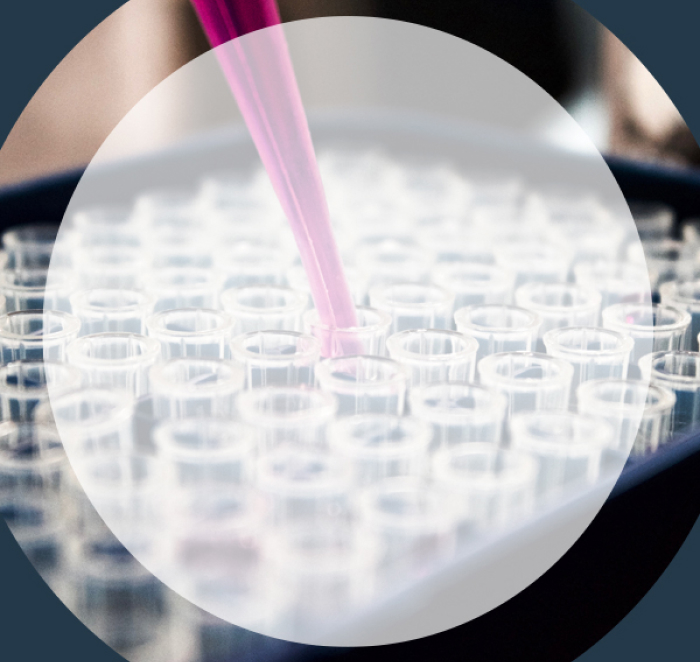
2010
Google uses method invented by CIFAR researcher Yann LeCun to launch Street View
Google uses convolutional neural networks, an avenue of deep learning developed by Yann LeCun, program co-director of CIFAR’s Learning in Machines & Brains program, to blur faces and car license plates in its Street View application. Defense Advanced Research Projects Agency, the research arm of the U.S. Defense Department, also uses it to detect large obstacles from afar. Read more in The Economist.
2011
CIFAR co-hosts colloquium on early adversity
CIFAR and the National Academy of Sciences co-host a prestigious colloquium on “Biological Embedding of Early Social Adversity.” Researchers in CIFAR’s Experience-Based Brain & Biological Development (now renamed Child & Brain Development) program lead the conference, sharing their insights into how early social and cultural experiences shape the trajectory of neurocognitive development. The colloquium leads to a PNAS volume of research examining how and why experiences interact with biology, marking clear directions for the field of developmental neuroscience.
2011
Exploring the impossible: CIFAR researchers Aephraim Steinberg and Krister Schalm first to track photons on quantum journey
In an experiment previously believed to be impossible, researchers including CIFAR Fellow Aephraim Steinberg and Junior Fellow Krister Shalm of the Quantum Information Processing program, become the first to track the average paths of photons passing through a double-slit experiment. This experiment offers insights into the dynamics that may drive the development of quantum computers.
2011
CIFAR researchers find new protein that helps photosynthesis
Patrick Keeling and Claudio Slamovits, who were fellows in the Integrated Microbial Biodiversity program, discover a new protein in a marine microbial organism that has the capacity to harvest the energy from sunlight. The discovery could be used to help build artificial photosynthetic systems, such as those that convert solar energy into electrical energy.
Photo: Oxyrrhis marina, the marine microbe in which Keeling and Slamovits discovered the light-harvesting protein.
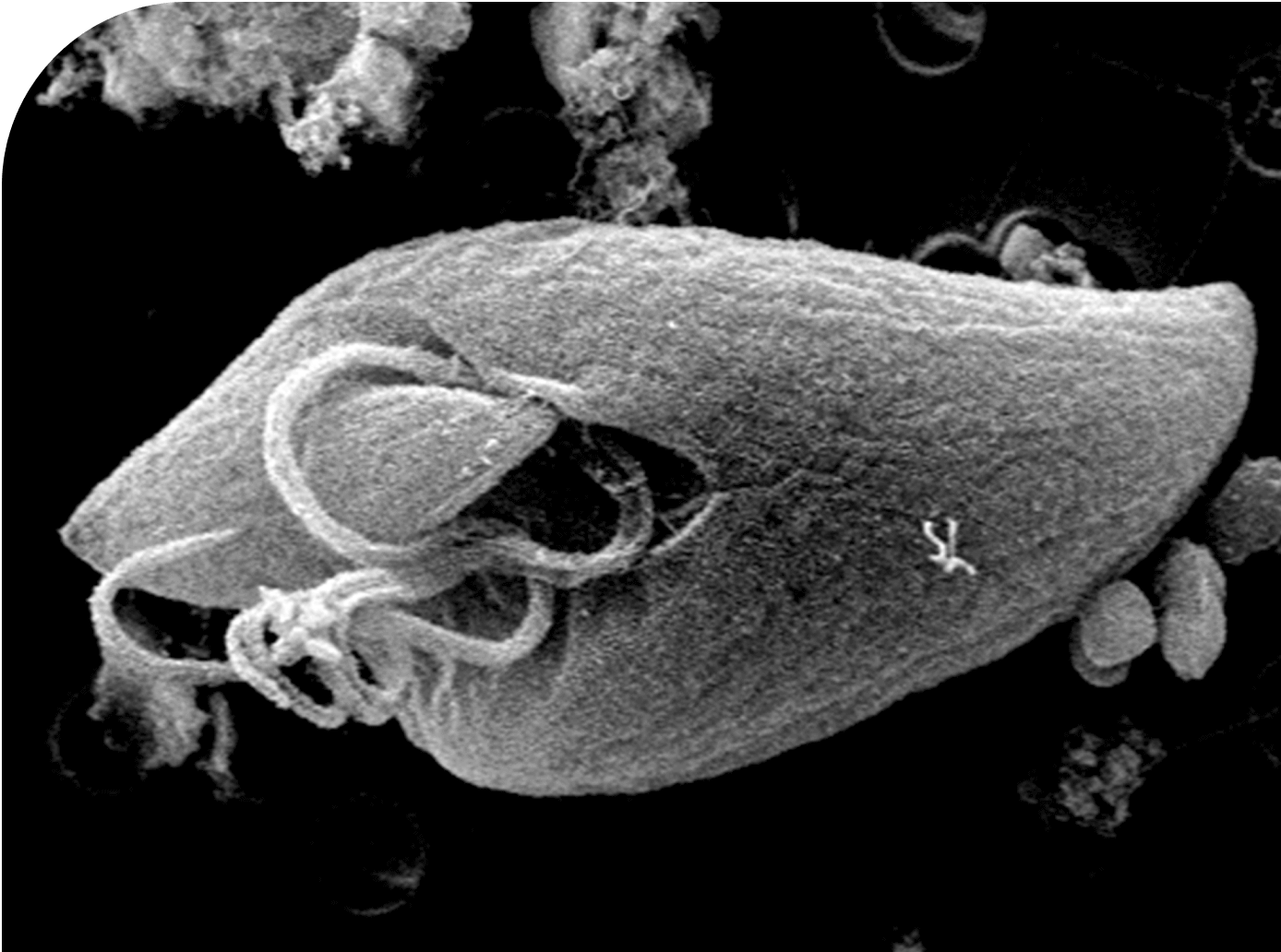
2012
Dr. Alan Bernstein, O.C. becomes president & CEO
Dr. Bernstein, a leader in health research and science policy, was previously the executive director of the Global HIV Vaccine Enterprise, inaugural president of the Canadian Institutes of Health Research, and the director of research for the Samuel Lunenfeld Research Institute.
His leadership initiates a refreshed vision for CIFAR, as it enters its fourth decade, emphasizing an outward and international focus — sharing new knowledge with humanity, and advancing interdisciplinary dialogue to solve the world’s greatest and most complex challenges.
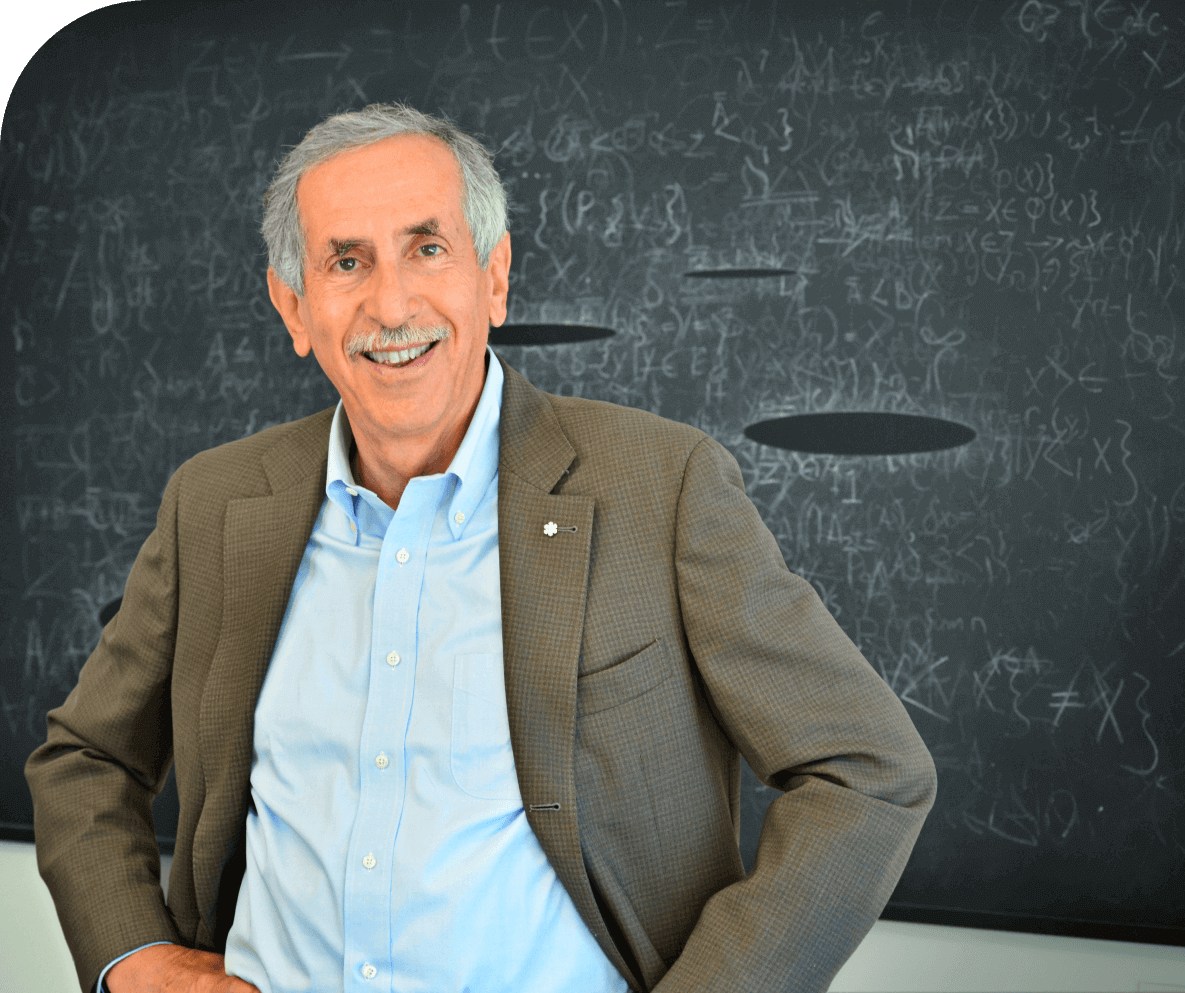
"I have long admired CIFAR's focus on identifying and supporting research that drives change and has the potential to improve human health, the environment, societies, technology and our understanding of the universe... For the past 30 years, CIFAR has been one of Canada's leading global research assets. I am honoured to be selected to succeed Chaviva Hošek as its next president and CEO."
Alan Bernstein, President & CEO, CIFAR, in Newswire
2012
CIFAR Distinguished Fellow John Helliwell co-authors UN’s first World Happiness Report
The United Nations Sustainable Development Solutions Network publishes the first World Happiness Report, co-authored by CIFAR Distinguished Fellow, John Helliwell, then co-director of CIFAR’s Social Interactions, Identity & Well-Being program. The report measures a variety of psychological, economic, medical and social factors, and continues to be issued annually, incorporating data from 150 countries. In 2021, Helliwell shared his insights on the previous year’s report and COVID-19’s effects on happiness.
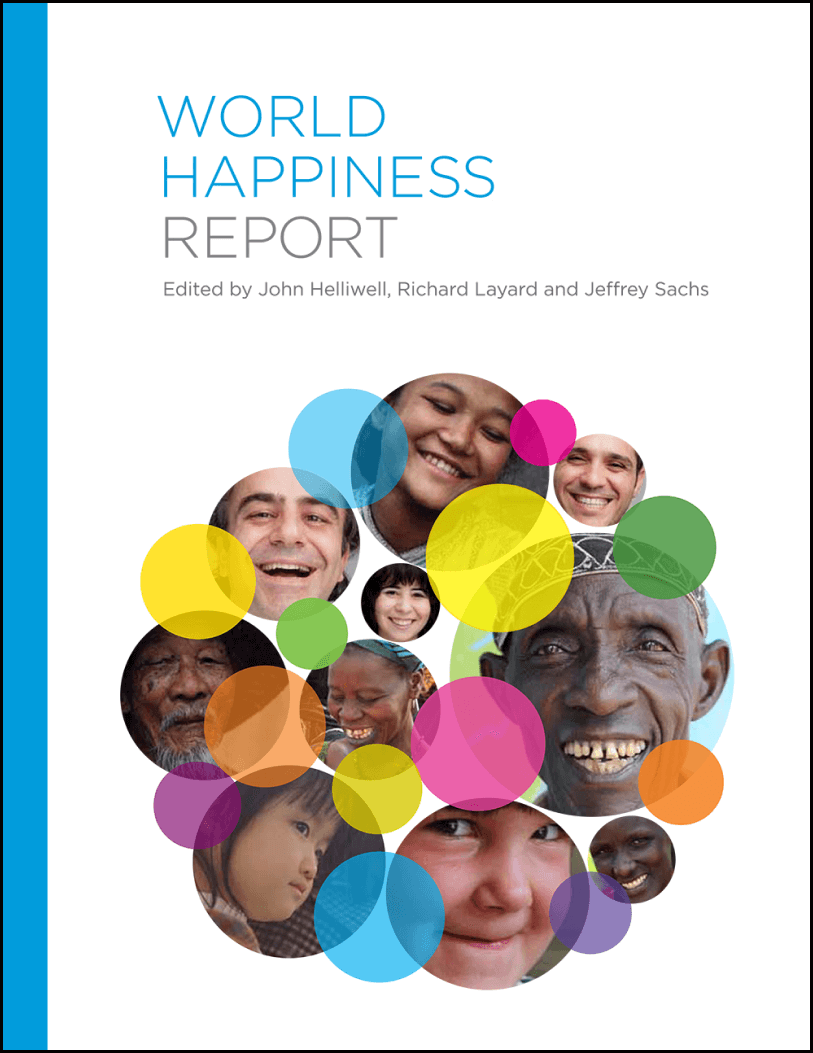
2014
Supporting and promoting the work of CIFAR in his role as Governor General of Canada, David Johnston becomes the first Viceregal Patron of CIFAR. Johnston was Governor General of Canada (2010-2017) and past Chair of the CIFAR Board of Directors (1994-1999).
"Researchers supported by this institute are taking on complex, globally significant challenges, and I would like to applaud your commitment to achieving excellence in such worthy research projects."
The Right Honourable David Johnston, Governor General of Canada (2010–2017), Viceregal Patron (2014–2017), Chairman Emeritus
2016
An historic gift: The Azrieli Foundation donates $10 million to launch the CIFAR Azrieli Global Scholars program
The landmark gift is the largest in CIFAR’s history, enabling the launch of the CIFAR Azrieli Global Scholars program and the Azrieli Program in Brain, Mind & Consciousness, a cutting-edge research program that brings together leading researchers from around the world to explore the biological basis of human consciousness.
Through the CIFAR Azrieli Global Scholars program, the gift provides funding and support to help early-career scholars build their research networks, fund their research programs and develop essential skills to become the world’s next generation of research leaders. To date, CIFAR has named 109 global scholars, some of whom have become CIFAR fellows and many have become leaders in their fields.
"The Azrieli Foundation seeks opportunities to foster excellence in science, investing in the work of both outstanding senior researchers and early-career scholars. CIFAR’s multi-disciplinary and global approach to addressing the world’s most complex issues makes them a perfect home for the collaborative research that can bring about breakthroughs in brain research."
Dr. Naomi Azrieli, Chair and CEO of the Azrieli Foundation
2016
CIFAR’s Victoria M. Kaspi becomes first woman to win Canada’s top science prize
Dr. Kaspi, program director of the Gravity & the Extreme Universe program, becomes the first woman to be awarded the $1 million Gerhard Herzberg Canada Gold Medal.
In 2019, Barbara Sherwood Lollar, co-director of the Earth4D program, becomes the second woman to receive the Herzberg Medal.
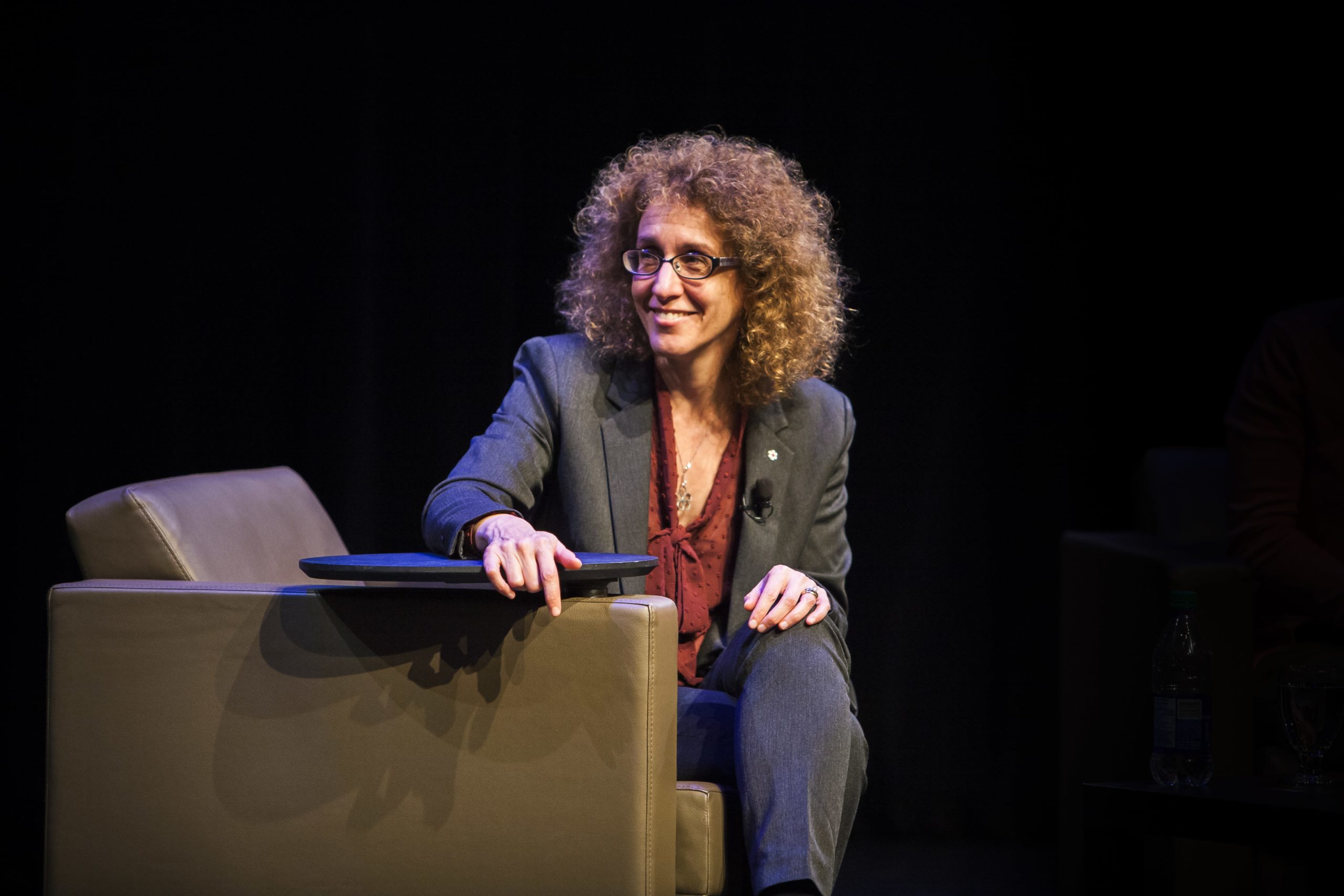
2016
‘Determination to have an impact on the world’: CIFAR hosts Forum on the Well-Being of the World’s Children
CIFAR convenes nearly 100 policy-makers, practitioners, and researchers at Canada House in London, England, to identify opportunities for a new research agenda around child well-being. “It builds on our internationally recognized role as a global convener, and combines it with our growing international reach and determination to have an impact on the world,” said Dr. Alan Bernstein, President & CEO of CIFAR. The Honourable Louise Arbour, former UN Special Representative of the Secretary-General on International Migration; former Justice of the Supreme Court of Canada and Sir Mark Walport, then Chief Science Advisor to the UK government, serve as co-chairs of the event.
2017
CIFAR leads world’s first national AI strategy
The Government of Canada asks CIFAR to develop and lead the Pan-Canadian AI Strategy, the world’s first national AI strategy and a $125-million investment in machine learning research, training and innovation.
Working with Canada’s three national AI institutes, Mila in Montreal, the Vector Institute in Toronto, and Amii in Edmonton, CIFAR creates the Canada CIFAR AI Chairs program which attracts and retains over 100 of the world’s top AI researchers to Canada, fostering research, innovation and collaboration in AI to advance ideas reshaping our world.
Today, more than 100 Canada CIFAR AI Chairs are training the next generation of AI scientists, advancing research over a range of fundamental and applied AI topics from drug discovery and machine learning for health, autonomous vehicles, materials discovery, human-AI interaction, natural language prediction, and more. Read more.
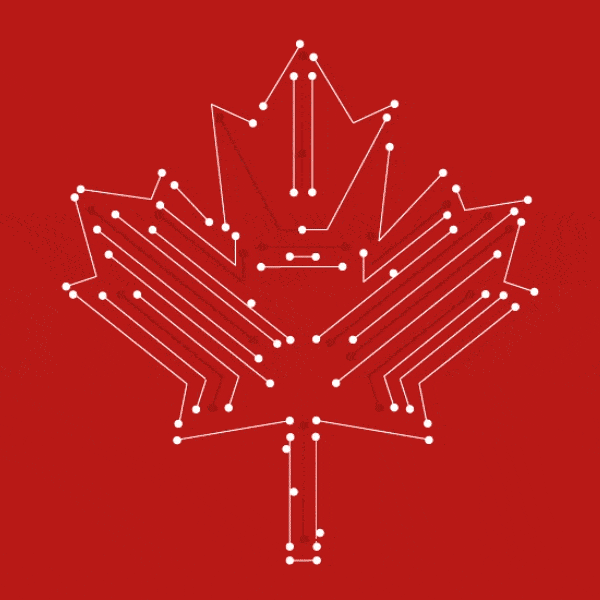
2017
A new chapter: CIFAR moves to innovation hub MaRS Discovery District
After 19 years at 180 Dundas Street West in Toronto, Canada, CIFAR moves its headquarters to its current location in the MaRS Discovery District, an innovation hub located at the corner of College Street and University Avenue.

2017
CIFAR launches second Global Call for Ideas
The second Global Call receives 91 Letters of Intent with team members from 51 countries and 6 continents. It leads to four new programs: Boundaries, Membership, & Belonging; Earth4D: Subsurface Science & Exploration; Fungal Kingdom: Threats & Opportunities; and Innovation, Equity, & the Future of Prosperity.
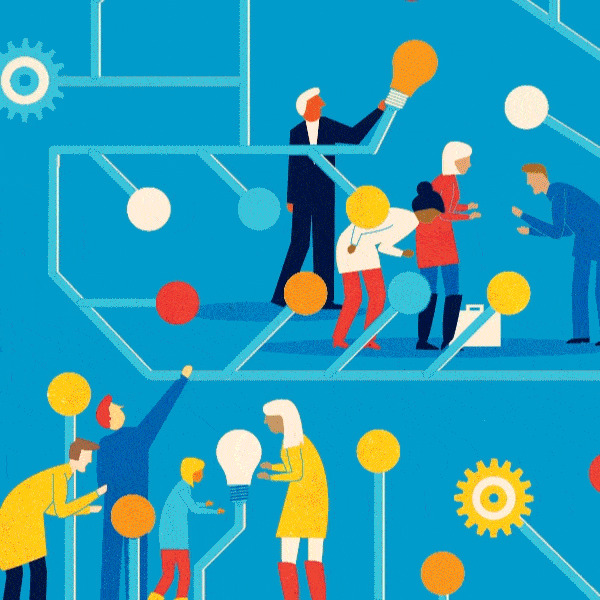
2018
CIFAR announces first cohort of Canada CIFAR AI Chairs
At December 2018’s AICan event, which brings together industry and research leaders in AI, CIFAR announces the first cohort of 29 Canada CIFAR AI Chairs. The program is the cornerstone of the CIFAR Pan-Canadian AI Strategy, recruiting the world’s leading AI researchers to Canada, while retaining our existing top talent. The program provides long-term, dedicated research funding to support their research programs and help them train the next generation of AI leaders.
"CIFAR is the glue for my favorite network of leading researchers in AI."
Hugo Larochelle, Associate Fellow, Learning in Machines & Brains and Canada CIFAR AI Chair, Pan-Canadian AI Strategy
2018
Solving cosmic mysteries: CHIME discovers second repeating fast radio burst
The CIFAR-supported CHIME telescope in British Columbia continues to make discoveries, particularly with respect to the puzzling phenomenon of fast radio bursts, which can tell us a great deal about what is happening in faraway galaxies. Read more.

2019
CIFAR fellows and AI forerunners win ACM A.M. Turing Award, the “Nobel Prize for Computing”
CIFAR Fellows Yoshua Bengio, Geoffrey Hinton and Yann LeCun are jointly awarded the prestigious A.M. Turing Award for their development of deep learning. Bengio, Hinton and LeCun came together at CIFAR in 2004 when Hinton founded what is now the Learning in Machines & Brains program. The fellows were interested in an artificial intelligence approach using neural networks, which are loosely modeled on the way the human brain works. Their work together led to many advances, including the breakthrough AI technique called deep learning, which is now integral to computer vision, speech recognition, natural language processing, and robotics.

